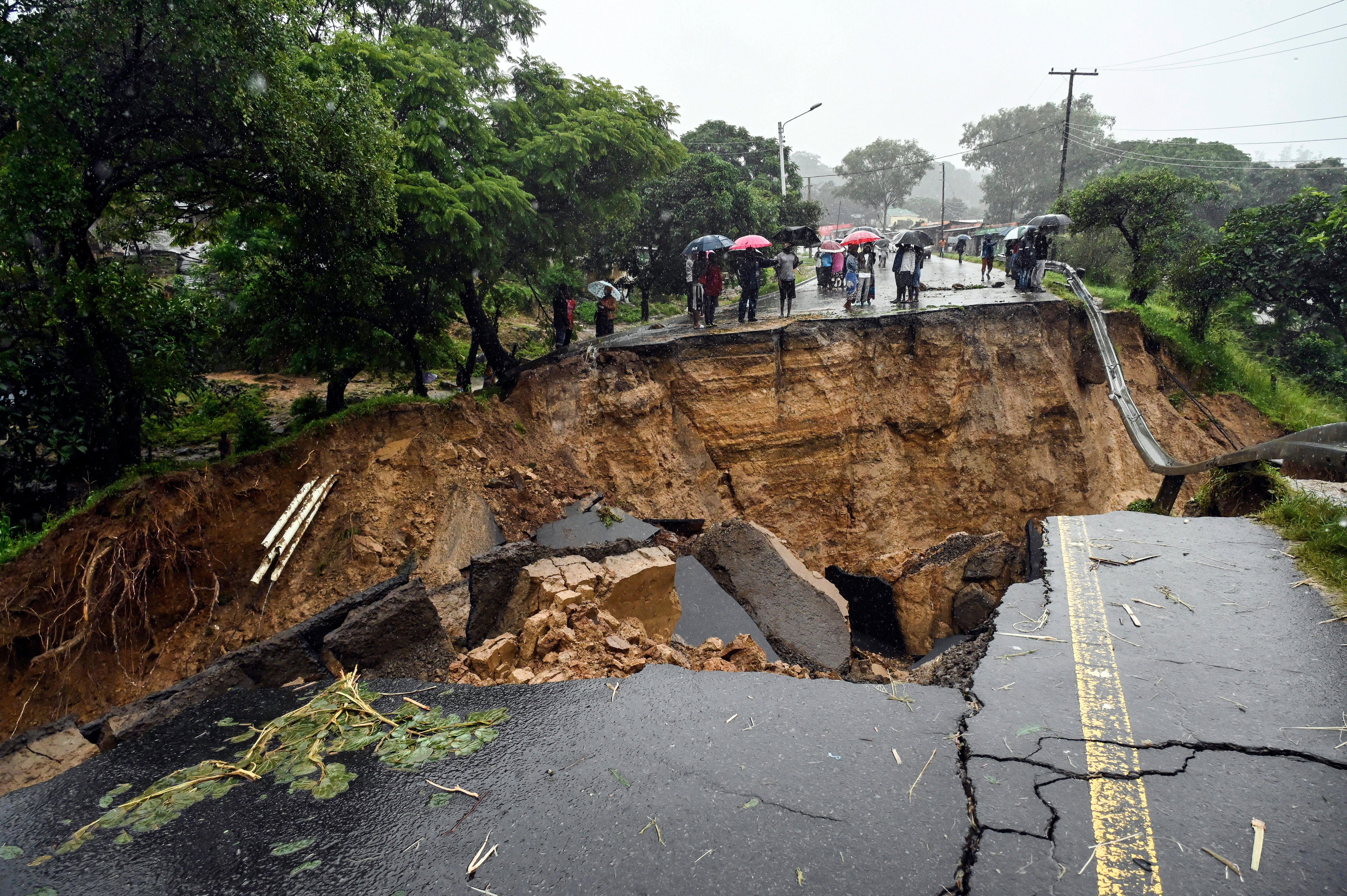UN weather agency says Tropical Cyclone Freddy that hit eastern Africa last year was longest ever
The U.N. weather agency says it has confirmed that Tropical Cyclone Freddy, a deadly Indian Ocean storm that lashed eastern Africa last year, was the longest-lasting cyclone ever recorded — at 36 days

Your support helps us to tell the story
From reproductive rights to climate change to Big Tech, The Independent is on the ground when the story is developing. Whether it's investigating the financials of Elon Musk's pro-Trump PAC or producing our latest documentary, 'The A Word', which shines a light on the American women fighting for reproductive rights, we know how important it is to parse out the facts from the messaging.
At such a critical moment in US history, we need reporters on the ground. Your donation allows us to keep sending journalists to speak to both sides of the story.
The Independent is trusted by Americans across the entire political spectrum. And unlike many other quality news outlets, we choose not to lock Americans out of our reporting and analysis with paywalls. We believe quality journalism should be available to everyone, paid for by those who can afford it.
Your support makes all the difference.The U.N. weather agency said Tuesday that Tropical Cyclone Freddy, a deadly Indian Ocean storm that lashed eastern Africa last year, was confirmed to be the longest-lasting cyclone ever recorded at 36 days.
Freddy topped the previous record held by Hurricane John, which struck Hawaii and lasted almost 30 days in the northern Pacific three decades ago, the World Meteorological Organization said as it released a study which began as Freddy waned in March last year.
It was also the second-longest in terms of distance traveled, at some 12,785 kilometers (7,945 miles) — while John was more than 13,000 kilometers, the agency said.
In the wake of Freddy, which pounded eastern Africa in two phases, more than 1,200 were reported dead or missing in Malawi while more than 180 people died in Mozambique, the WMO said.
“It didn’t make just one landfall, which is what we normally see with a tropical cyclone," said Clare Nullis, a WMO spokeswoman. "It had multiple landfalls in what very are vulnerable countries: Mozambique, Madagascar, it also had big impacts in Malawi, other southern African countries.”